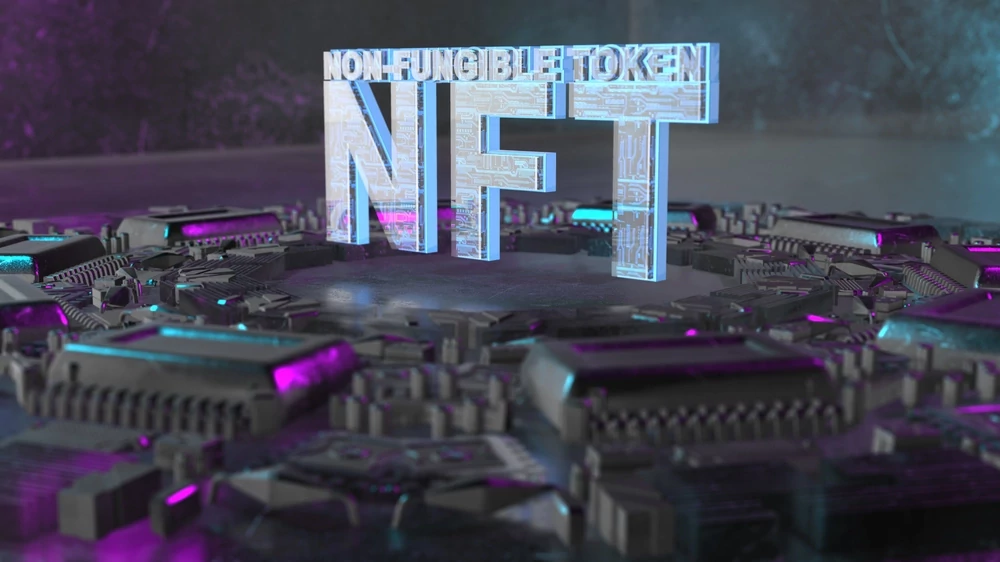In recent years, Non-Fungible Tokens (NFTs) have been making waves in the world of gaming and esports. NFTs provide a new and exciting opportunity for gamers and esports fans to monetize their skills and passion for the game. In this blog post, we’ll explore how NFTs are changing the economics of gaming and esports, and how this new technology is revolutionizing the gaming industry.
What are NFTs and How Do They Work?
NFTs are unique digital assets that are verified on a blockchain, which is a decentralized digital ledger. Unlike other cryptocurrencies like Bitcoin, which are interchangeable and have the same value, NFTs are unique and have individual value. This means that each NFT is one-of-a-kind and can be sold and traded just like physical assets.
How NFTs are Changing the Gaming Economy
NFTs are changing the gaming economy in several ways:
- Monetization of in-game assets: NFTs allow gamers to own and monetize their in-game assets, such as weapons, skins, and other items. This means that gamers can earn real money by selling their digital assets to other players.
- Digital ownership: NFTs provide a way for gamers to own and trade digital assets, which was not possible before. This gives gamers a sense of ownership and control over their digital assets.
- Transparency and authenticity: NFTs provide a way to verify the ownership and authenticity of digital assets, which can help to prevent fraud and scams in the gaming industry.
NFTs and Esports

NFTs are also changing the world of esports, by providing new opportunities for fans and players alike. Some examples include:
- Fan engagement: NFTs can be used to create unique and exclusive experiences for esports fans, such as virtual meet-and-greets with their favorite players.
- Player monetization: NFTs allow esports players to monetize their skills and achievements, by selling digital assets like game replays and tournament highlights.
- Team ownership: NFTs can also be used to represent ownership in esports teams, giving fans a sense of ownership and investment in their favorite teams.
Challenges and Opportunities in NFTs and Gaming
While there are many opportunities for NFTs in gaming and esports, there are also several challenges to consider. For example:
- Technical complexity: Creating and managing NFTs requires technical expertise and knowledge of blockchain technology, which can be a barrier for some gamers and esports fans.
- Regulation: The use of NFTs in gaming and esports is still a relatively new concept, and there are few regulations governing their use.
- Environmental impact: Creating and managing NFTs requires significant energy consumption, which can have a negative impact on the environment.
Despite these challenges, the opportunities presented by NFTs in gaming and esports are significant and are likely to continue growing in the future.
Examples of NFTs in Gaming and Esports
There have already been several successful uses of NFTs in gaming and esports, including:
- Axie Infinity: A blockchain-based game where players can earn cryptocurrency by playing and owning NFT-based creatures called Axies.
- NBA Top Shot: A platform that allows fans to buy, sell, and trade NFTs featuring NBA highlights and moments.
- Fortnite: The popular game has experimented with NFTs by allowing players to buy and sell skins and other in-game items.
These successful examples demonstrate the potential of NFTs in gaming and esports and the demand for unique and valuable digital assets.
Benefits of NFTs in Gaming and Esports
NFTs provide several benefits in gaming and esports, including:
- Monetization of skills: NFTs allow gamers and esports players to monetize their skills and passion for the game, by selling and trading their digital assets.
- Fan engagement: NFTs can be used to create unique and exclusive experiences for fans, such as virtual meet-and-greets with their favorite players or ownership in their favorite esports teams.
- Authenticity and transparency: NFTs provide a way to verify the ownership and authenticity of digital assets, which can help to prevent fraud and scams in the gaming industry.
Future of NFTs in Gaming and Esports
As NFTs continue to grow in popularity, we can expect to see more innovative uses for this technology in gaming and esports. For example, NFTs could be used to create virtual experiences, such as exclusive in-game events or virtual meet-and-greets with esports players. Additionally, NFTs could be used to create a new revenue stream for gamers and esports players, who could sell NFTs as a way to monetize their skills and achievements.
Furthermore, the use of NFTs in gaming and esports could also change the way in which fans interact with their favorite games and players. By providing ownership and value to digital assets, NFTs could help to create a new era of gaming and esports, where fans have a greater sense of investment and engagement in the games they love.
Ethical Considerations in NFTs and Gaming
Environmental impact
One of the biggest concerns with NFTs is their potential impact on the environment. NFTs rely on blockchain networks, which require a significant amount of energy to operate. This has led to concerns about the carbon footprint of NFTs and their potential impact on climate change. As the use of NFTs continues to grow, it will be important to find ways to mitigate their environmental impact.
Accessibility
While NFTs have the potential to create new opportunities for players and creators, there are concerns about their accessibility. NFTs are often sold for high prices, which may make them inaccessible to many players and fans. Additionally, the use of blockchain networks can make it difficult for players in certain regions to access NFTs due to internet connectivity issues or government restrictions.
Ownership and control
One of the key benefits of NFTs is that they provide a way for creators and players to own and control their digital assets. However, there are concerns about the potential for centralized control of NFTs and the impact this could have on the ownership and control of digital assets. It will be important to ensure that NFTs remain decentralized and that creators and players have control over their digital assets.
Exploitation
There are also concerns about the potential for NFTs to be used for exploitation. For example, there have been cases of artists and creators being taken advantage of by NFT platforms or investors. Additionally, there are concerns about the potential for NFTs to be used for money laundering or other illegal activities.
Measuring Success of NFTs in Gaming and Esports
To measure the success of an NFT campaign in gaming and esports, it’s important to track key metrics such as:
- Sales: How many NFTs were sold and for what price?
- Engagement: How many people engaged with the NFT campaign on social media and other channels?
- Traffic: Did the NFT campaign drive traffic to the gaming or esports platform?
- Player monetization: Did the NFT campaign provide a new revenue stream for gamers and esports players?
By tracking these metrics, gaming and esports platforms can evaluate the success of the NFT campaign and make data-driven decisions for future campaigns.
NFTs and the Future of Gaming and Esports
The rise of NFTs in gaming and esports is part of a larger trend towards the monetization and authentication of digital assets. As more and more content is created and consumed online, there is a growing need for tools and technologies that can help to prove ownership and authenticity.
NFTs provide a new and exciting opportunity for gamers and esports fans to monetize and authenticate their digital assets. In the future, we can expect to see more uses for NFTs in gaming and esports, such as the creation of virtual experiences and the monetization of gaming and esports skills.
Examples of Successful NFT Campaigns in Gaming and Esports
There have been several successful NFT campaigns in gaming and esports, including:
- F1 Delta Time: A blockchain-based game where players can own and race unique digital cars as NFTs.
- The Sandbox: A virtual world game where players can own and trade NFTs of virtual land and assets.
- Sorare: A fantasy soccer game where players can own and trade NFTs of soccer players.
These successful examples demonstrate the potential of NFTs in gaming and esports and the demand for unique and valuable digital assets.
Conclusion
In conclusion, NFTs are revolutionizing the way that gamers and esports enthusiasts interact with digital assets. With the ability to own unique and valuable in-game items and assets, players can now engage with their favorite games on a whole new level. Additionally, NFTs provide new opportunities for gaming and esports companies to generate revenue and engage with their fanbase. While there are still challenges and concerns to be addressed, the potential for NFTs to transform the economics of gaming and esports is clear. As the industry continues to evolve, we can expect to see more innovation and experimentation with NFTs in the years to come.
I have over 10 years of experience in the Crypto industry and I have written dozens of articles on the subject. I am one of the leading experts in Cryptocurrency and my work has been featured in major publications such as Forbes, CoinDesk, and Bitcoin Magazine. I am also a regular contributor to CoinTelegraph and have been interviewed by numerous media outlets including CNBC, Bloomberg, and The Wall Street Journal. In addition to my writing, I am also an active investor in the space and have made successful investments in a number of projects including Ethereum, Bitcoin, and Litecoin.

